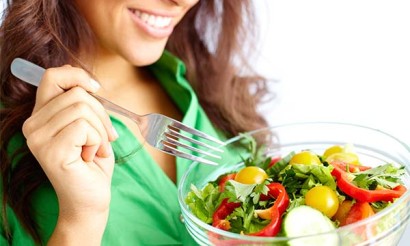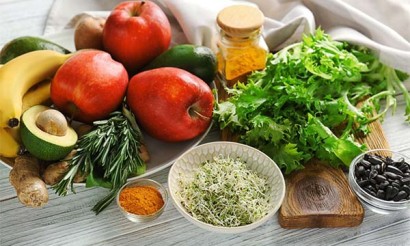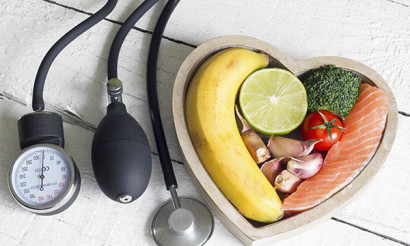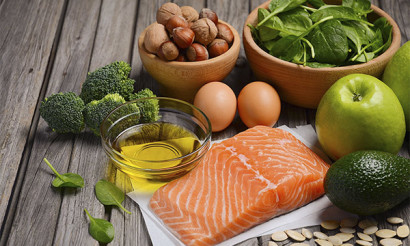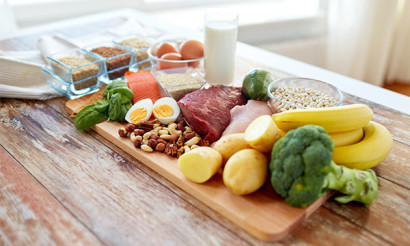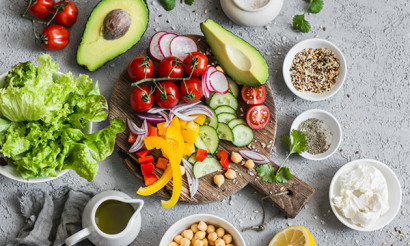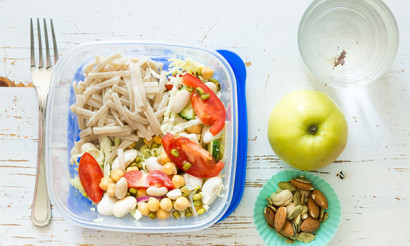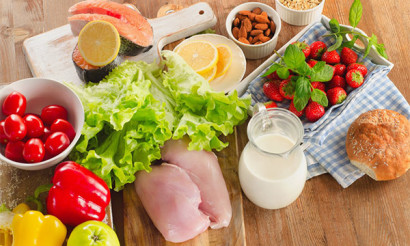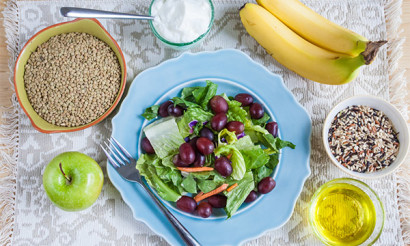Nutrition in colitis: what you can and can't eat?
A list of foods and drinks that can and cannot be eaten with such a disease as colitis.
- What you can and can't eat with colitis
- Lentils
- Oatmeal
- Wheat porridge
- Corn porridge
- Couscous
- Black cumin oil
- Linseed oil
- Pumpkin seed oil
- Sea Buckthorn Oil
- Cream butter
- Olive Oil
- Goat milk
- Ryazhenka
- Cottage cheese
- Condensed milk
- Milk
- Kefir
- Yogurt
- Lard
- Corn
- Beets
- Tomatoes
- Garlic
- Eggplants
- Celery
- Pumpkin
- Cucumbers
- Zucchinis
- Broccoli
- Potatoes
- Carrots
- Red cabbage
- Curcuma
- Honey
- Propolis
- Seaweed
- Squid
- Dill Seeds
- Flax seeds
- Bitter Chocolate
- Sugar
- Oatmeal cookies
- Ice Cream
- Halva
- Marshmallows
- Tomato juice
- Sauce of cabbage
- Carrot juice
- Pomegranate juice
- Cognac
- Coffee
- Kissel
- Beer
- Mineral water
- Rosehip decoction
- Red Wine
- Raisins
- Mint
- Dill
- Nettles
- Apples
- Apricots
- Pomegranate
- Peaches
- Pear
- Lemon
- Oranges
- Bananas
- Kiwi
- Avocado
- Cherry
- Grapes
- Blueberries
- Strawberry
- Watermelon
- Buckthorn
- Rosehip
- Blueberry
- Raspberry
- Raspberry
- Omelette
- Boiled eggs
- Quail eggs
- Baked apples
- Pasta
- Mayonnaise
- Pea Soup
What you can and cannot eat with colitis
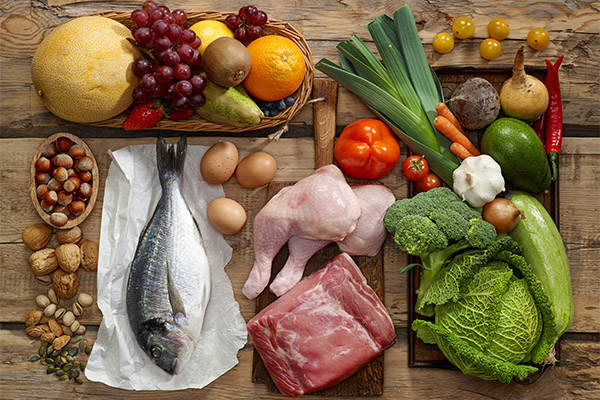
Lentils
As in the acute form of inflammation of the intestinal mucosa, and in the chronic course of the disease to legumes should be treated with caution. And experts often advise restricting food to people suffering from colitis. The fact is that this type of food is saturated with vegetable proteins and heavy fiber, which are quite difficult for the intestines to digest and assimilate.
But if it is difficult or for some reason impossible to refuse to eat them, you just need to add turmeric, dill or parsley. They reduce flatulence, and also accelerate the dissolution of solids.
Oatmeal.
In the first days of the acute period, it is desirable for patients with colitis to minimize the amount of food consumed at all. This requirement is due to the pronounced symptomatology of the disease, which gives patients incredible suffering. But on the 2-3rd day it is already possible to introduce into the diet a slimy decoction of oat flakes in water.
As the patient's well-being improves, it will be possible to switch to light porridges and soups. During the remission period, it is allowed to add a little milk when cooking a dish.
Wheat porridge
In colitis, wheat porridge will be very helpful, because it normalizes the work and microflora of the intestine. It soothes the inflamed mucosa of the sick intestine and normalizes the stool. But with colitis, accompanied by bloating, it is better to refrain from its consumption.
Corn porridge
This pathology is an inflammatory bowel disease. Since it recommends products that will not irritate the intestines and increase their peristalsis, it is better to give up corn porridge.
Couscous
Patients with inflammatory bowel disease are advised to consume only liquid porridge and only in small quantities.
Black cumin oil
Due to its unique properties, black cumin oil can also be used to treat colitis. When used correctly, this product will help:
- normalize the patient's stool;
- reduce acute pain syndrome;
- Get rid of flatulence.
Doctors note that the product can be introduced in a complex therapy only after consultation with the attending physician and evaluation of the overall condition of the patient. Remember - self-treatment can lead not only to the deterioration of the general condition, but also to the development of related diseases!
Linseed oil
Flaxseed oil is often found in the composition of dietary meals for patients with colitis. This is due to the fact that the product has a beneficial effect on the mucous membrane of the gastrointestinal tract, protects it by enveloping it, helps the feces to move through the intestine more easily. Also, the vegetable substance relieves inflammation and pain, as well as treats erosions, thereby facilitating the process of defecation.
Pumpkin seed oil
In this disease, during an exacerbation, it is not recommended to drink pumpkin oil, so as not to provoke a worsening of the situation. However, during the remission period, this product is necessary to eliminate all the effects of inflammation and prevent its recurrence.
Sea Buckthorn Oil
People who are faced with intestinal colitis know that this disease is incurable. To alleviate your condition, you can only adhere to a proper diet and periodically relieve symptoms with medications.
Make the frequency of exacerbations less frequent can sea buckthorn oil. In this case, its benefits and use are similar to those for other intestinal diseases. Take it, as mentioned above, only after the approval of the treating gastroenterologist.
Butter
In this disease, it is forbidden to consume foods that contain trans fats. Butter is on the list of these products. It is worth noting that in some cases with colitis, 40-50 grams (no more) of butter per day is allowed.
Olive oil
In acute colitis, cold-pressed oil is included in the diet, and is also used for microclysters. This type of local treatment promotes rapid healing of the injured intestine. It is recommended to perform the procedure at night, so that the damaged mucosa had time to absorb all the useful components.
In addition, any oil well lubricates the inner walls of the intestine, which greatly facilitates the passage of feces. As the results of clinical studies, patients with colitis, who regularly took a tablespoon of olive oil in the morning hours, were able to several times longer period of stable remission.
Goat's milk
The use of cow's milk in colitis is fraught with abdominal bloating, the appearance of heaviness, so it is excluded from the diet. It is the exact opposite in its effect on the body. Doctors recommend using only goat milk. Due to its composition, it has a positive effect on the gastrointestinal organs, eliminates the symptoms of colitis, and normalizes microflora.
Ryazhenka
Ryazhenka is allowed for intestinal inflammation only in the chronic form in remission and no more than 200 ml per day.
Cottage cheese
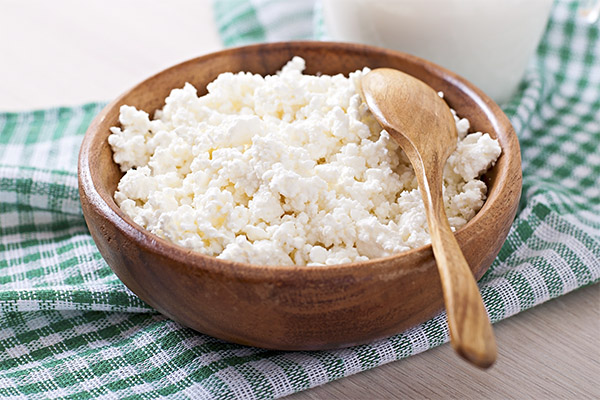
In the case of exacerbation of chronic colitis in the diet of the patient is allowed strained cottage cheese. At the stage of remission of colitis, it is also recommended to consume a sufficient amount of this delicacy. Colitis with constipation requires inclusion of fatty cottage cheese in the diet, with the manifestation of colitis with diarrhea, a fresh product with less fat content is allowed.
Condensed milk
It is forbidden to consume condensed milk and with colitis. Otherwise, there is a risk of an exacerbation of the disease and the deterioration of the patient's condition.
Milk
This is a severe inflammatory bowel disease, which, even in remission, requires a fairly strict diet. Cow's milk is completely excluded from it. When the above-mentioned protein A1 is digested, a substance called BKM 7 (beta-casomformin) is released. It has no effect on healthy people. But if there is even slight damage to the intestinal walls, it worsens their condition and increases inflammation because of its oxidizing properties. So you have to give up milk.
Kefir
The situation is considered individually, because flatulence and intestinal intolerance of lactose in colitis can cause a worsening of the condition. If after drinking kefir improves health and excludes the appearance of GI problems, it is important to include the product in the diet to saturate the body with useful micro- and macronutrients.
Yogurt
Yogurt is not only part of the diet, but is also beneficial due to its rich content of lactic acid bacteria. In colitis, it has a favorable effect on the regulation of the patient's stool. It is recommended to use yogurt with natural additives - apricots, prunes, fruit and wheat bran. The fat content of the purchased product should be minimal, and additives should be absent.
Lard
The disease requires mandatory observation of a specialist, as well as a strict diet that prohibits the use of lard.
Corn
Medics allow the use of corn for patients with colitis, but only in the form of porridge. Porridge will be a good source of carbohydrates and will help the patient to eliminate constipation. It is desirable to take the product 2 hours before the main meal. But the amount of cereal consumed is limited. If a healthy person can eat up to 200 g of the product per day, a sick person needs only 2 spoonfuls.
Beets
With inflammation of the intestinal walls, it is not recommended to eat raw vegetables, including beets, because they stimulate the work of the organ. Excessive strain during an exacerbation of the disease can cause pain and diarrhea. In the chronic stage or in remission, it is acceptable to eat boiled beets. Start adding it to your diet with caution, gradually increasing it to 100-200 g per day. Boiled root vegetables help to restore metabolic processes in the body, a beneficial effect on the mucous membranes of the gastrointestinal tract and helps prevent attacks of colitis.
Tomatoes
In the diet of patients should be present only fresh tomatoes, peeled from the skin. Due to their properties, the product will help to protect the intestinal mucosa from the negative effects of a number of factors.
Garlic
In colitis, garlic can be added to food in small amounts. This will normalize the intestinal function, and will also help in the treatment of inflammation of the digestive organs. It is recommended to use about 2 grams of garlic powder 2 times a day after meals. Such a regimen will help in the shortest time to adjust the stool and get rid of diarrhea, which occurs with colitis. But we should not forget about the individual characteristics of each individual person, so before starting to use a burning vegetable, you should consult a specialist.
Eggplant
Eggplant, like any food, can lead to severe complications in undiagnosed colitis. Subsequently, the doctor may include steamed or baked eggplant in the diet. Heat treatment is extremely important, you should add another 10-15% cooking time to the recommended in the recipe.
Celery
Essential oils contained in celery can increase the acidity of gastric juice, which is an aggressive environment and can cause the development of putrefactive processes. They can aggravate the course of the disease. Therefore, it is recommended to limit the consumption of celery in colitis.
Pumpkin
In colitis, pumpkin is allowed, but only baked or lightly fried, and the product should not have a rough crust. Raw and dried seeds can also be included in the diet.
Cucumbers
The diet for colitis should be made for each patient individually. Salted and pickled cucumbers should be excluded completely, but fresh cucumbers may well be used in the composition of the patient's daily menu.
Zucchini
With this pathology, you can not use fried zucchini, pickled vegetables, as well as pancakes and pancakes made of them. But zucchini in boiled form will only be useful.
Broccoli
When a patient has colitis or Crohn's disease, there is constant inflammation in the stomach. There is a real battlefield between the immune system and the bacteria. A recent discovery made by a group of Swedish scientists showed that eating broccoli helps treat the disease. Broccoli, thanks to the presence of vitamins and minerals, increases the immune defenses, and dietary fiber removes from the body not only toxins but also pathogenic bacteria.
Potatoes
Potatoes are on the list of allowed foods in this disease. However, it should be cooked with a minimum amount of salt.
Carrots
If the intestinal mucosa is damaged, you can not irritate it with coarse fiber, so carrots in such cases are used in boiled or baked form, as well as mashed. Then she will help to restore health more quickly. With serious forms of diseases before introducing the product into the diet, it is worthwhile to consult with a doctor.
Cauliflower
Against the background of exacerbation of colitis, cauliflower should not be consumed. Usually during this period, the treatment consists of starvation, and then a gradual transition to a sparing food. Of all types of cabbage during the diet, only cauliflower is allowed only in the period when the symptoms subside. Colitis patients can eat this vegetable in stew or boiled form. Fried cabbage in this disease is unacceptable.
In colitis with diarrhea, it is recommended to limit the use of cauliflower. If colitis occurs against a background of constipation, this vegetable should be taken regularly, because it increases intestinal peristalsis.
Curcuma
About the benefits of turmeric for colitis, experts have mixed reviews. This product, not long ago, it was generally forbidden to use in inflammation of the intestines. But recent scientific studies have proven that the spice can speed up the healing process. But to decide whether to include this unusual product in the complex treatment can only a doctor, but not the patient or his relatives. Colitis is a serious disease. Therefore, any amateurism in its treatment is unacceptable.
Honey
Honey is considered a natural anti-inflammatory product, so using it with this disease is not only possible, but extremely useful.
Propolis
Colitis in the acute phase is characterized by intense pain, flatulence, stool disorder in the form of constipation or diarrhea. All these unpleasant symptoms deliver discomfort and suffering to the sick person. To relieve the patient's condition can be simple means with propolis. It is enough to take a tincture of the bee product in alcohol in a weak (10%) concentration of 30 drops three times a day, so that the inflammatory process went down. Previously, the drug should be diluted with milk or water (100 ml). Such a gentle way to treat the first 5-7 days, and then you can take a more concentrated solution (30%). The dose can be increased up to 40 drops.
Effective with colitis microclysters: 4 grams of honey product per 100 grams of boiled water. After the solution has infused for a day, it can be used for the procedure. Before the microclysters, it is necessary to clean the intestines well.
Seaweed
Seaweed in the stomach swells, and, moving further along the gastrointestinal tract, irritates the mucosal receptors. Therefore, it is contraindicated in acute colitis (or exacerbation of chronic disease).
Calamari
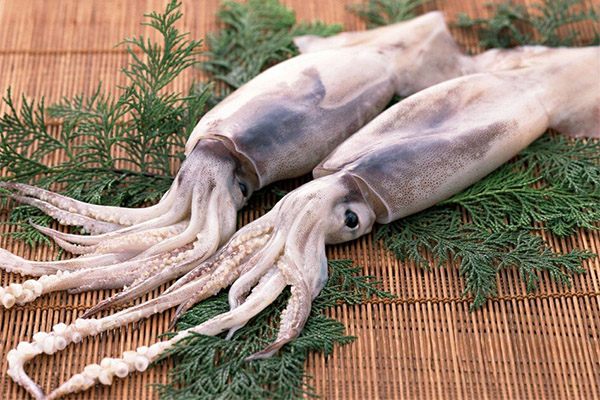
In colitis (pathological inflammation of the mucosa of the large intestine) requires strict adherence to a diet. But it allows inclusion in the menu and seafood, including calamari. Again, because of the richest composition and at the same time easy digestibility, it will not bring any potential harm to health and will not aggravate the course of the disease. It can be added to the diet in any form of cooking, except frying.
Dill Seeds
Dill seeds in the form of a tincture will help to fight the disease, restore the work of the gastrointestinal tract. They inhibit pathogenic flora, which is the cause of the disease, as well as eliminate foci of infection in the pancreas and bladder.
Flax seeds
This is an inflammatory bowel disease in which drugs that increase peristalsis, including flaxseeds, are not recommended.
Bitter chocolate.
In general, in the absence of food allergies, patients with colitis can consume small amounts of bitter chocolate. Keep in mind, however, that the product may have a mild laxative effect. Some studies have described an association of exacerbation of Crohn's disease and nonspecific ulcerative colitis with consumption of bitter chocolate, so the best choice is to limit consumption to a minimum amount.
Sugar
Inflammation of the colonic mucosa is called colitis. Doctors recommend eating simple foods for many illnesses related to disorders in the healthy functioning of the organs involved in digestion. It should not cause a strain on digestion. Sugar, despite the content of easily digestible carbohydrates, does not belong to such food, so its consumption should be minimized.
Oatmeal cookies.
Since colitis has several forms of its exacerbation - acute and chronic, then the diet will be different at different stages. In such a disease, doctors recommend several days not to take any food at all, and after starvation they prescribe the patient a strict diet, in which you can forget about store sweets. Therefore, buy oatmeal cookies should be excluded from your normal diet, but the homemade version of the sweet can sometimes indulge yourself.
Ice cream
To the great regret of sweet eaters, in colitis doctors strictly forbid eating any products with sugar, including ice cream. No culinary tricks and making natural homemade ice cream will help to get rid of the negative effects that will be caused by sweetness. Treatment of colitis involves a strict ordering of diet and eating habits. To get rid of the disease from patients requires strict adherence to a diet that completely eliminates sugar, of which there is so much in the cold dessert.
Halva
Due to the content in halva of many useful substances and vitamins, with colitis it can and should be eaten. In particular, in this case, the insoluble dietary fiber has a positive effect on the gastrointestinal tract.
However, there are certain nuances. For example, for the preparation of halva, sunflower seeds are used, which can accumulate various carcinogenic substances. And with prolonged storage of harmful substances becomes more than useful, which is dangerous in such a disease as colitis.
Marshmallow
Experts say that marshmallow with colitis intestines is useful due to the normalization of microflora. The protein in the composition of the product strengthens the walls of the intestine, so that inflammation is relieved and the most unpleasant symptoms of colitis are eliminated.
Tomato juice
When colitis is detected, only freshly prepared homemade tomato juice is allowed to be consumed. The purchased product may contain dyes and various preservatives, which can harm the injured gastrointestinal tract. It is worth noting that in this disease, it is necessary to dilute the juice with boiled water, otherwise the work of the intestines will be slowed down.
Tomato juice in the case of colitis will be a good remedy that will stimulate the intestinal function, as well as protect against the possible occurrence of cancer. Drink such a drink before meals, without adding salt.
Cabbage juice
You should not refuse this natural drink to patients who suffer from colitis. In limited quantities, cabbage juice will help to improve the overall condition of the patient, relieve the unpleasant manifestations of the disease and speed up the recovery process.
Carrot juice
Gastroenterologists strongly recommend patients suffering from colitis to completely exclude carrot juice from the daily menu during the acute period. At this time, the patient is shown therapeutic fasting, the purpose of which is to relieve acute symptoms.
Consumption of this drink is allowed only after the patient's condition has stabilized. However, it is not recommended to consume juice in large quantities. Only the treating physician can determine the permissible quantity and frequency of consumption of the drink. In some cases, restrictions may be minimal, while in others a strict diet will be necessary.
If the doctor's recommendations are followed, carrot juice will not only help relieve the unpleasant symptoms of colitis, but also saturate a depleted body with nutrients.
Pomegranate juice
Consumption of pomegranate juice is considered individual - by doctor's permission, as its main task is considered to produce intestinal bacteria, which can reduce the level of inflammation. As a result, the feeling of inflammation and burning is relieved.
Cognac
Colitis is a serious condition in which the consumption of brandy is strictly forbidden. This is based on the fact that it is alcohol that can lead to the development of this pathology. Once in the body, cognac causes inflammation of the intestinal mucosa, and also disrupts the peristalsis of the rectum. That is why cognac, like any other alcohol, is prohibited for use in colitis at any stage of the disease!
Coffee
When colitis develops, the intestinal mucosa is affected. Drinking coffee in this case is strictly prohibited, as well as strong tea. This is due to the fact that the drink negatively affects the mucosa of the organ and provokes the spread of the pathological process.
It should not be included in the diet with colitis and coffee with milk. Despite the fact that milk reduces the negative effects of the drink, it can also cause irreparable harm.
Kissel
If colitis is manifested by the development of diarrhea, it is recommended to brew a fruit or berry kissel. This drink will envelop the intestines, absorb all the harmful components and will have a consolidating effect thanks to the tannins in its composition.
Before using such an auxiliary method of treatment of colitis with diarrhea, it is recommended to initially determine the cause of this disorder. In this case, you should use only a treat prepared by yourself at home. It is better to refuse from briquettes. It is believed that if you consume three times a day such a drink, the condition of the patient will soon improve.
Beer
With colitis, beer belongs to the list of prohibited products. The fact is that alcohol in this case disrupts the peristalsis of the rectum, which provokes the development of colitis. People who suffer from this pathology and continue to drink alcohol, in particular beer, more often suffer from constipation, because they do not consume enough food.
Mineral water
Mineral water not only copes with thirst, but also has a beneficial effect on the inflamed walls of the intestinal mucosa. The selection of a suitable mineral drink should take into account the recommendations of the treating physician. Water with low mineralization is prescribed in case of increased motility of the intestine. The duration of therapy is three weeks. Liquid should be taken in a warm form (not less than 36 degrees).
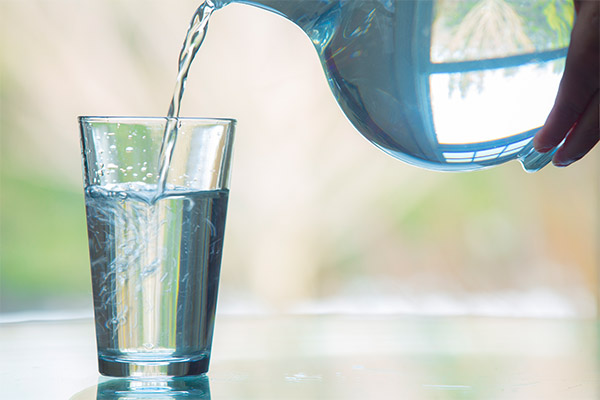
If the function of the intestine is reduced, the patient is shown the use of mineral water with an average level of mineralization. The temperature of the drink should be 20 degrees. The treatment lasts for three weeks.
Studies have shown that when all the recommendations are followed, the following changes are observed:
- Normal intestinal motility is restored;
- There is an increase in the regenerative capacity of the mucous membrane;
- The inflammatory process decreases.
Microclysters with mineral water restore intestinal microflora and improve the well-being of the patient. For this purpose, the water is heated to 37 degrees and administered rectally in small amounts. The single dose should not be more than 50 ml.
Rosehip decoction
Rosehips are used as an anti-inflammatory agent in colitis. The healing components included in the berries of the plant have a strengthening effect on the intestines. For this reason, experts recommend using rosehip decoction in colitis. It is allowed to use the infusion not only in the period of remission, but also during the acute phase.
Recipe for infusion in colitis: 25 grams of rosehip flowers pour boiling water in an amount of 200 ml and cover with a lid. The resulting infusion is recommended to use three times a day. A single dose is 25 ml. The remedy helps to reduce pain syndrome.
Red wine
This disease has an inflammatory nature, but the causes of its development have not been established. Some experts believe that red wine, which contains antioxidants, has excellent anti-inflammatory properties. They recommend to drink it as a medicine, 2 tbsp. three times a day for half an hour before a meal. The duration of such a course should be no more than a month. However, this method of treatment has its detractors.
Raisins
In colitis, experts do not recommend, and in some cases even prohibit the use of raisins. If during the course of the disease the patient is tormented by diarrhea, then dried berries should not be eaten. In the case of constipation, it is possible to include them in the diet, but after consulting with the attending physician, and dried grapes should be used only as part of other dishes.
Mint
Colitis is an inflammation of the mucous membrane of the colon. The disease can occur in acute and chronic form. To relieve the symptoms of this pathology, it is recommended to pour 30 g of mint herb with 2 cups of boiled water and insist for 30 minutes. After the specified period, the liquid should be strained and used 100 ml twice a day before meals.
Dill
With colitis in the composition of the diet can include dill. An effective remedy for colitis is considered a tea of dill seeds.
Nettle
For patients with chronic colitis, the following formulation is recommended: mix stinging leaves, peppermint, the usual drugstore chamomile and dried blueberries in equal proportions. Exactly 3 tbsp. mixture pour 3 cups of prepared boiling water, and then insist at least 4-5 hours in a thermos or in a pot with a lid, wrapped with a blanket. After that, strain and squeeze the raw material. Ready to take infusion warm one cup per day for half an hour before a meal.
Apples
With colitis, patients are forced to follow a strict diet so as not to cause an exacerbation of the disease. Unfortunately, many fruits are forbidden, but apples have defended their right to eat during illness. Pectin contained in the fruit normalizes stool, and phytoncides do an excellent job of destroying pathogenic bacteria. Doctors recommend eating fresh apples for colitis accompanied by diarrhea, and baked fruit on an empty stomach for constipation. In any case, you should peel the apple from the skin, because it contains insoluble fiber, which can harm the inflamed intestine. The daily rate is determined by the doctor, focusing on the condition of the patient and the features of the diagnosis.
Apricots
Apricot fruits are contraindicated for patients suffering from irritable bowel syndrome. In such a product, there is fiber, which leads to the rapid movement of the contents through the large intestine. If colitis is detected, the consumption of this fruit is dangerous for impaired stools, as well as the development of abdominal cramps.
Pomegranate
Pomegranate is useful for any diseases of the digestive organs. Pomegranate is also useful in the diet of a person diagnosed with colitis. Pomegranate is popularly called the guardian of the intestines. This is due to the fact that these fruits inhibit the development of pathogens, without affecting the beneficial bacteria. In the treatment of colitis, you can also use a remedy based on pomegranates. To do this, it is necessary to prepare a decoction or infusion. However, it is worth noting that the therapeutic effect is achieved only with the disease, which is accompanied by diarrhea, because the fruit has astringent properties. Also in the pomegranate peel there are elements that have an anti-inflammatory effect, ensuring rapid healing of the damaged mucous membrane of the organ.
It should be remembered that it is contraindicated to drink pomegranate juice in its pure form to people with colitis, because the drink can have an irritating effect. For this reason, you should dilute the product with water and drink it through a straw.
Peaches
All fruits have in their composition a lot of fiber, which is extremely necessary for the digestive tract organs. Peaches in this case is no exception. However, you need to remember that only soluble fiber can be used with inflammation of the intestines. The insoluble form can only aggravate the condition. Therefore, doctors advise patients with colitis to approach the intake of such fruit with special caution.
Pear
It is forbidden to consume pears in their raw form. Rough fiber will irritate the intestinal walls and lead to a worsening of the condition. Doctor on the basis of objective diagnosis can include in the diet baked, boiled, stewed pears in small quantities. Juices and compotes do not contain fiber, so can be freely added to the diet.
Lemon
Colitis is a serious condition that needs to be diagnosed quickly. Under no circumstances should you eat lemon, other citrus fruits, nuts, tomatoes, or even milk. Only after a diagnosis can the doctor prescribe a diet. In some chronic forms of colitis, lemon is used restrictedly as part of other dishes or drinks.
Oranges
This disease affects the colon. Orange in patients with colitis causes a state of discomfort, so it is better not to eat it.
Bananas
It is necessary to strictly follow the prescribed diet. It is recommended to include bananas, and they are allowed even in periods of exacerbation of the disease.
Kiwi
Specialists recommend to refuse the consumption of kiwi in colitis, because this product has a laxative effect, which is undesirable in this case and can provoke the aggravation of symptoms of the disease.
Avocado
Infusions of avocado leaves and seeds are used for intestinal diseases, including bacterial ones. Such a potion helps to kill pathogenic organisms, relieve fever, soothe irritation and heal the mucosa. At the same time, the avocado itself will become a valuable nutrient component, supporting the body's strength in the fight against such a delicate disease.
Cherry
Colitis is a fairly common disease, in which patients are forbidden to eat most berries and fruits. In the period of remission, you can let yourself eat cherry fruits, but you should be very careful. In a week you can eat no more than 200 grams of fresh fruit. But berries, which have been thermally processed, namely, jam, you can enjoy. The body will be saturated with useful trace elements and will not get much harm. In any case, it is necessary to consult a doctor, because only a specialist is able to determine all the possible risks of consumption.
Grapes
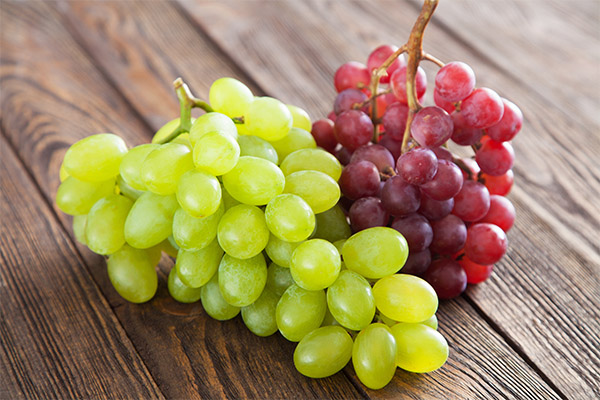
With such a disease as colitis, the use of grapes is under strict prohibition. This is due to the fact that the inflamed mucosa can not digest food containing a lot of fiber, and grapes have plenty of it. In addition, a frequent companion of colitis is intestinal dysbiosis. The fruit sugar contained in fruits, inhibits the reproduction process of harmful bacteria and thus destroys the rest of the useful intestinal microflora.
Blueberries
Colitis develops against the background of inflammation of the intestinal mucosa. The main signs are pain, swelling and stool disorders. Get rid of unpleasant symptoms will help blueberries.
The use of berries at the diagnosis of colitis is not prohibited. But they should be eaten with caution and after consulting a specialist.
Strawberries
As with any other inflammatory diseases of the gastrointestinal tract, with colitis it is not recommended to eat strawberries in fresh form, because the acids and fiber in this case will only aggravate the problems.
Watermelon
At an exacerbation of colitis, watermelon should not be consumed at all. And even in remission, you need to be careful - no more than 200 grams of pulp per day.
Sea buckthorn
In the acute form of the disease, sea buckthorn is strictly contraindicated. In the stage of stable remission, you can drink compotes and morses to normalize digestion and improve the condition of the mucosa.
Rosehip
Doctors believe that rosehips should be used with this disease. It is full of carotene, pectins, various acids, etc. In colitis, it is used as a very effective anti-inflammatory agent.
Apply the plant in colitis is allowed and in periods of exacerbation, and during remission. For example, if during nausea, which is almost a constant companion of the disease, to chew a couple of rosehip leaves, the nausea can be muted. Also decoctions from this plant help with bleeding, which also often occurs with colitis.
Blueberries
Experts say that the consumption of blueberries helps to eliminate the symptoms of colitis. This is due to its anti-inflammatory properties.
Due to the content of dietary fiber, the stool is normalized, bloating goes away and the general condition of the patient is improved.
Cold infusion
To eliminate the symptoms of colitis, it is recommended to use a cold infusion of dried berries. 15 g of fruit pour a glass of cold water in the evening and leave it overnight. During the next day, consume the resulting infusion in several receptions.
Raspberry
Colitis is a disease that develops on the mucous membrane of the large intestine. The symptoms of this ailment are unpleasant, and sometimes even dangerous. The causes of this disease can be different. If used properly, the berries will delight you with their useful properties in the treatment of this ailment. Due to its rich vitamin and mineral composition, raspberries help to normalize the stool, regardless of whether colitis is manifested by diarrhea or constipation. In addition, useful substances of berries prevent the development of inflammatory processes in the mucosa of the large intestine. Also, this manifests the antispasmodic effect of the product.
Raspberries
Experts say that fresh raspberries in such diseases as colitis can lead to a worsening of the pathology and the development of serious complications. The reason for such a ban is the presence in berries of small seeds, which can irritate and traumatize the mucous membrane of the gastrointestinal tract, which is extremely undesirable in colitis.
But freshly squeezed juice and decoctions from the leaves of this plant in moderate quantities can positively affect the course of the disease and help to relieve unpleasant symptoms.
Omelet
The diet, which should be followed in colitis, should be aimed not only at eliminating all intestinal irritating products, but also at observing the nutritional content of dishes. Eggs in boiled, raw or fried form are strictly forbidden in colitis. But steam omelet, cooked in water, not only allowed, but also recommended to include in the diet. It is important to observe the norm - 2 eggs a day.
Boiled eggs
Intestinal colitis comes in different types and can be accompanied by diarrhea or constipation. If colitis with diarrhea, hard-boiled chicken eggs must be present in the diet. Eggs are among those products that normalize the stool and soothe the intestines.
As mentioned above, they are rich in protein, which can sometimes contribute to constipation. In the case of an upset stool, this property will only benefit.
In the case of colitis with constipation, it is better to exclude eggs from the menu, despite their usefulness. In periods of remission of the disease, it is allowed to use 1 egg per day, boiled, but it is necessary to clarify this with your treating gastroenterologist.
Quail eggs
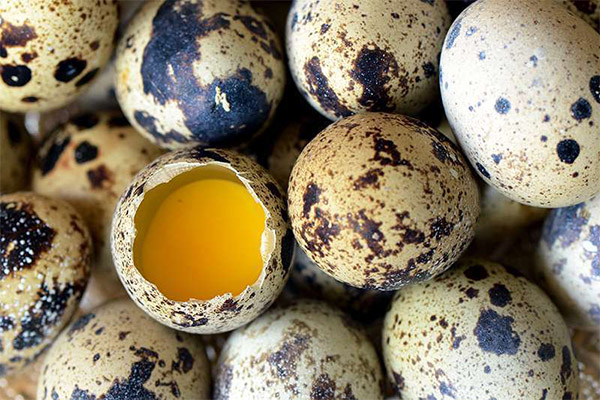
Eggs must be eaten with colitis. And they are used not only as a dietary product, but also have a very effective therapeutic effect. Especially useful are eggs in raw form, as they have antibacterial properties, are well assimilated by the body, have analgesic and anti-inflammatory effect. But in any case it is necessary to consult with the attending physician.
Baked apples
With such a disease as colitis, it is allowed to eat baked apples, but no more than 1-2 pieces per day. Also, preference should be given to fruits of sweet varieties, since excessive acidity should be avoided in colitis. You can bake apples with sugar, honey or cottage cheese. Almost any variant of cooking baked fruit is suitable for people suffering from colitis. This dessert will not only alleviate the condition of the patient, but will also be an excellent substitute for harmful sweets, which certainly should not be eaten with colitis.
Pasta
The diet for this disease involves a strict abstinence from foods with a high fiber content. Therefore, pasta in any form is prohibited. Eating them can aggravate the manifestations of colitis, because the inflamed large intestine accumulates fiber from this product, thereby intensifying the chronic course of the disease.
Mayonnaise
In colitis, the most common culprits are fatty and smoked foods. Therefore, another serving of fatty sauce with added acid and mustard will cause irritation of the intestines, fermentation in it, impaired stool and another attack of pain.
Pea soup
If a person suffers from colitis, he should also be careful to use peas in his diet. Or better simply eliminate this crop from the diet.
«Important: All information on the site is provided solely for introductory purposes. Before applying any recommendations, consult a health care professional. specialist. Neither the editors nor the authors shall be liable for any possible harm caused by materials."

